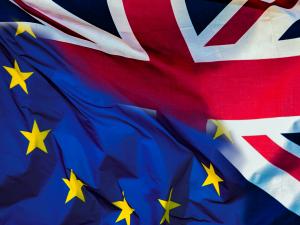
Press Association
Theresa May has faced fresh pressure over her plans to deal with the Northern Irish border after Brexit, as Ireland's European Commissioner urged her to change course.
Phil Hogan said the problems around the border - one of the key obstacles blocking talks on a UK-EU trade deal after the country leaves the bloc - could be solved by remaining in the customs union and single market, or allowing Northern Ireland to do so.
His comments came after the Prime Minister's DUP allies issued a warning that they would not tolerate any attempt to put barriers between Northern Ireland and the rest of the UK after Brexit.
The Prime Minister has been given until December 4 to come up with further proposals on issues including the border, the Brexit divorce bill and citizens' rights if European leaders are to give the green light to moving on to the next phase of negotiations covering the future relationship between the UK and Brussels.
Mr Hogan, the EU's agriculture commissioner, said it was a "very simple fact" that "if the UK or Northern Ireland remained in the EU customs union, or better still the single market, there would be no border issue".
In a swipe at the Government's approach to Brexit he told the Observer: "I continue to be amazed at the blind faith that some in London place in theoretical future free trade agreements.
"First, the best possible FTA with the EU will fall far short of being in the single market. This fact is simply not understood in the UK.
"Most real costs to cross-border business today are not tariffs - they are about standards, about customs procedures, about red tape.
"These are solved in the single market, but not in an FTA."
The Prime Minister has ruled out remaining in the single market and customs union and a ny arrangement which appeared to give Northern Ireland a separate status would be strongly resisted by the DUP, whose 10 MPs are effectively keeping Mrs May in Downing Street after she lost her majority in the general election.
DUP leader Arlene Foster told her party conference on Saturday: "We will not support any arrangements that create barriers to trade between Northern Ireland and the rest of the United Kingdom or any suggestion that Northern Ireland, unlike the rest of the UK, will have to mirror European regulations."
Meanwhile it emerged t he UK could be required to follow new rules implemented by the EU during a Brexit transition period.
The position set out by Michel Barnier in leaked documents would make the application of new EU rules a condition of a transitional deal, meaning Britain could be subject to further Brussels' regulations for about two years after leaving the bloc.
Mrs May hopes to secure an implementation period between the UK's formal exit date and the commencement of any post-Brexit trade deal in order to give businesses time to adjust to the new arrangements, but accepting the imposition of new rules could trigger a revolt by Eurosceptics.
It would also go against the approach to an implementation period set out by the Prime Minister in her Florence speech, where she said the "framework for this strictly time-limited period ... would be the existing structure of EU rules and regulations".
The Independent obtained a presentation drawn up by Mr Barnier for representatives of the 27 remaining EU members which he said a transitional deal would involve the "automatic application in the UK of new EU rules post-30 March 2019".
Foreign Secretary Boris Johnson has already indicated that accepting further regulations from Brussels would cross a red line.
The Prime Minister was also under pressure not to water down a red line on the European Court of Justice's jurisdiction ending when the UK leaves the EU.
The Sunday Telegraph reported that Eurosceptic ministers and backbenchers have expressed alarm at a plan being pushed in the Cabinet's Brexit sub-committee for the UK to agree to a system of "voluntary referral" of cases to the Luxembourg court.


 Police launch murder probe after death of woman in north Belfast
Police launch murder probe after death of woman in north Belfast
 BBC granted time to consider appeal in Gerry Adams case before paying all costs
BBC granted time to consider appeal in Gerry Adams case before paying all costs
 Man, 54, dies in Co Londonderry crash
Man, 54, dies in Co Londonderry crash